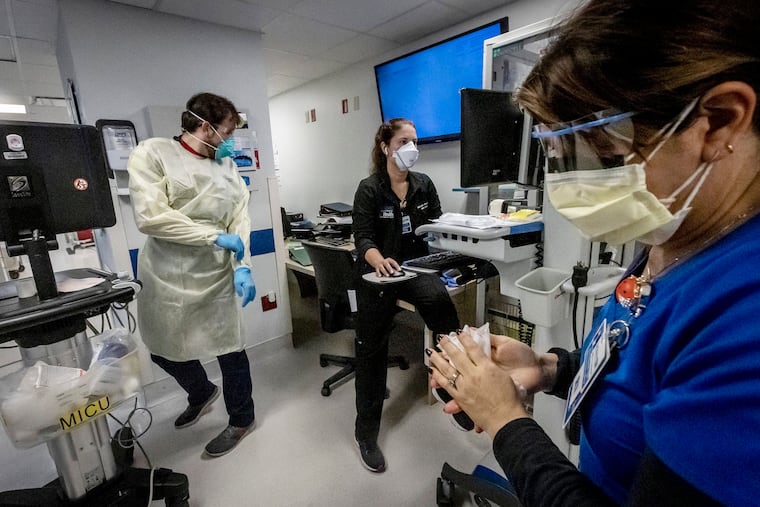As delta surge pushes non-COVID patients out of hospitals, Philly doctor says latest wave is more like a wildfire | Expert Opinion
The longer and the larger the pandemic burns, the more it consumes the resources we all rely on, such as hospital beds, ventilators, and finances.

Slowly, but surely, you can hear the wave approach, except that it doesn’t sound like water crashing to shore.
It sounds like the stories you hear about friends and colleagues, who despite being young, healthy, and vaccinated, have contracted COVID-19 with symptoms. You notice signs appearing around Philadelphia that require people to wear masks and show proof of vaccination to enter.
At the hospital, it sounds like patients who explain why they have driven so far to receive semi-urgent operations.
The hospitals they normally would have gone to “were over capacity and couldn’t take us,” one patient’s family member said, “but it’s not like this is an operation that we could patiently wait out until the pandemic is over, so we kept driving.”
It sounds like news accounts about people in Florida waiting outside the hospital in the ambulance for hours until they can be seen.
Sometimes when we talk about the pandemic in abstract terms such as waves it can be easy to forget that the wave is made up of people.
Even though I still see very sick COVID-19 patients in the ICU, I had been comforted into a sense of security by how effective the vaccines have been. The wave had begun to sound far, far away.
But I am beginning to think that perhaps a wave is an incomplete analogy.
Yes, the pandemic does spread across towns like fast-flowing water wreaking havoc, but the metaphor doesn’t convey how our fate is interconnected — regardless of age, underlying conditions, or even vaccine status — in dealing with COVID-19. If hospital admissions in Philadelphia related to COVID-19 increase significantly again as they have elsewhere, resources that could have gone toward patients with cancer or heart disease or other conditions will be less available. Patients in our community, too, could need to find care elsewhere.
In that sense, the pandemic is more like wildfire when oxygen is scarce. The longer and the larger it burns, the more it consumes the resources we all rely on, such as hospital beds, ventilators, and finances.
We are all in this together, and the only way to survive it is by working together. It’s not enough to dodge the wave. We all have to do our part to keep the fire away.
That’s why it is important to get vaccinated. And if you are vaccinated, it’s also why you have to do more than blame those who haven’t gone for shots. The health and well-being of all of us is intimately, and inextricably, tied together.
A lot has changed since the first wave. Highly effective vaccines have been invented and distributed. New strains of the virus have emerged. We have changed, too, and will surely need to change even more.
Jason Han is a cardiac surgery resident at a Philadelphia hospital.